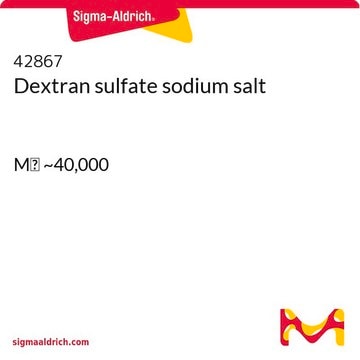220488
Chk2 Inhibitor, PV1019
The Chk2 Inhibitor, PV1019 controls the biological activity of Chk2. This small molecule/inhibitor is primarily used for Phosphorylation & Dephosphorylation applications.
Sinónimos:
Chk2 Inhibitor, PV1019, NSC 744039
Iniciar sesiónpara Ver la Fijación de precios por contrato y de la organización
About This Item
Fórmula empírica (notación de Hill):
C18H17N7O3
Peso molecular:
379.37
UNSPSC Code:
12352200
NACRES:
NA.77
Productos recomendados
Quality Level
assay
≥95% (HPLC)
form
solid
manufacturer/tradename
Calbiochem®
storage condition
OK to freeze
desiccated (hygroscopic)
protect from light
color
orange
solubility
DMSO: 5 mg/mL
shipped in
ambient
storage temp.
−20°C
General description
A cell-permeable nitroindolo-guanidinohydrazone compound that acts as a potent, ATP-competitive, and highly selective Chk2 inhibitor (IC50 = 138 and 570 nM against the phosphorylation of histone H1 by Chk2 in the presence of 10 µM and 1 mM of ATP, respectively), while exhibiting much reduced or no activity against a panel of 52 other cellular kinases, including Chk1 (IC50 = 15.73 and 55 µM against substrate phosphorylation and Chk1 autophosphorylation with 10 µM ATP). Shown to effectively suppress radiation-induced phosphorylation of Chk2 (on Ser516) and its downstream substrate Cdc25c (on Ser216) in MCF7 cultures (IC50<10 µM) and reduce the sensitivity of wild-type murine thymocytes to radiation-induced apoptosis to the level seen in Chk2-/- cultures.
A cell-permeable nitroindolo-guanidinohydrazone compound that acts as a potent, ATP-competitive, and highly selective Chk2 inhibitor (IC50 = 138 and 570 nM against the phosphorylation of histone H1 by Chk2 in the presence of 10 µM and 1 mM of ATP, respectively), while exhibiting much reduced or no activity against a panel of 52 other cellular kinases, including Chk1 (IC50 = 15.73 and 55 µM against substrate phosphorylation and Chk1 autophosphorylation with 10 µM ATP). Shown to effectively suppress radiation-induced phosphorylation of Chk2 (on Ser516) and its downstream substrate Cdc25c (on Ser216) in MCF7 cultures (IC50<10 µM) and reduce the sensitivity of wild-type murine thymocytes to radiation-induced apoptosis to the level seen in Chk2-/- cultures.
Packaging
Packaged under inert gas
Warning
Toxicity: Standard Handling (A)
Reconstitution
Following reconstitution, aliqout and freeze (-20°C). Stock solutions are stable for up to 3 months at -20°C.
Other Notes
Jobson, A.G., et al. 2009. J. Pharmacol. Exp. Ther.331, 816.
Legal Information
CALBIOCHEM is a registered trademark of Merck KGaA, Darmstadt, Germany
Storage Class
11 - Combustible Solids
wgk_germany
WGK 3
flash_point_f
Not applicable
flash_point_c
Not applicable
Certificados de análisis (COA)
Busque Certificados de análisis (COA) introduciendo el número de lote del producto. Los números de lote se encuentran en la etiqueta del producto después de las palabras «Lot» o «Batch»
¿Ya tiene este producto?
Encuentre la documentación para los productos que ha comprado recientemente en la Biblioteca de documentos.
Gwenola Manic et al.
Cell death and differentiation, 28(7), 2060-2082 (2021-02-04)
Cancer stem cells (CSCs) are tumor subpopulations driving disease development, progression, relapse and therapy resistance, and their targeting ensures tumor eradication. CSCs display heterogeneous replication stress (RS), but the functionality/relevance of the RS response (RSR) centered on the ATR-CHK1 axis
Ho Tsoi et al.
International journal of molecular sciences, 23(20) (2022-10-28)
Breast cancer is a heterogeneous disease. Tamoxifen is frequently used to treat ER-positive breast cancer. Our team has identified a novel splice variant of NCOR2, BQ323636.1 (BQ), that mediates tamoxifen resistance. However, the upstream factors that modulate BQ expression are
Brandoch Cook et al.
The Journal of biological chemistry, 296, 100696-100696 (2021-04-26)
Bone fractures are common impact injuries typically resolved through natural processes of osteogenic regeneration and bone remodeling, restoring the biological and mechanical function. However, dysfunctionality in bone healing and repair often arises in the context of aging-related chronic disorders, such
Yandong Yin et al.
Molecular cell, 81(20), 4243-4257 (2021-09-03)
Mammalian cells use diverse pathways to prevent deleterious consequences during DNA replication, yet the mechanism by which cells survey individual replisomes to detect spontaneous replication impediments at the basal level, and their accumulation during replication stress, remain undefined. Here, we
Nuestro equipo de científicos tiene experiencia en todas las áreas de investigación: Ciencias de la vida, Ciencia de los materiales, Síntesis química, Cromatografía, Analítica y muchas otras.
Póngase en contacto con el Servicio técnico








